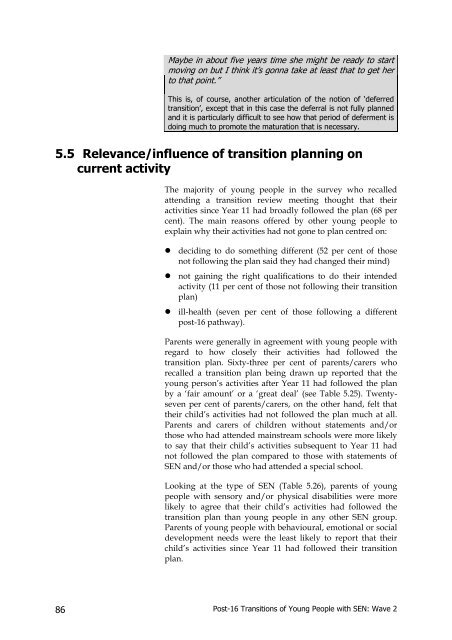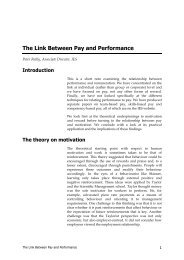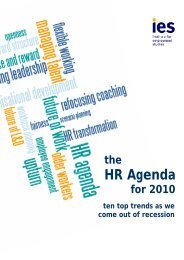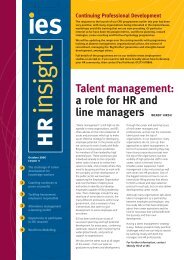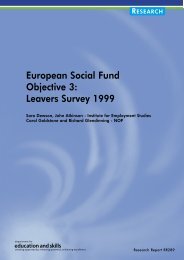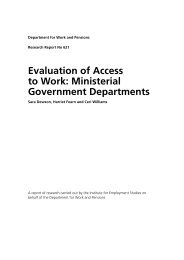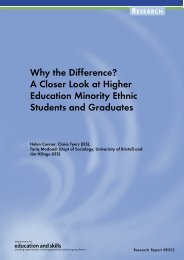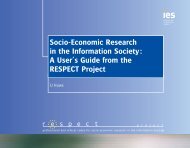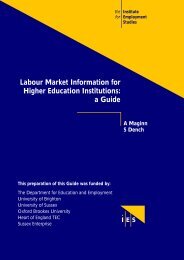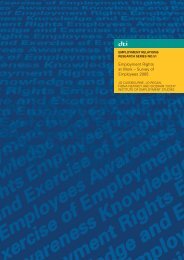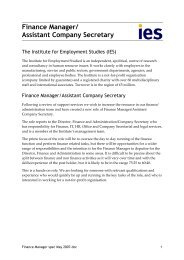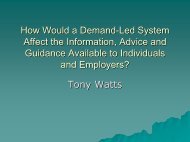Post-16 Transitions: a Longitudinal Study of Young People with ...
Post-16 Transitions: a Longitudinal Study of Young People with ...
Post-16 Transitions: a Longitudinal Study of Young People with ...
You also want an ePaper? Increase the reach of your titles
YUMPU automatically turns print PDFs into web optimized ePapers that Google loves.
Maybe in about five years time she might be ready to start<br />
moving on but I think it’s gonna take at least that to get her<br />
to that point.”<br />
This is, <strong>of</strong> course, another articulation <strong>of</strong> the notion <strong>of</strong> ‘deferred<br />
transition’, except that in this case the deferral is not fully planned<br />
and it is particularly difficult to see how that period <strong>of</strong> deferment is<br />
doing much to promote the maturation that is necessary.<br />
5.5 Relevance/influence <strong>of</strong> transition planning on<br />
current activity<br />
The majority <strong>of</strong> young people in the survey who recalled<br />
attending a transition review meeting thought that their<br />
activities since Year 11 had broadly followed the plan (68 per<br />
cent). The main reasons <strong>of</strong>fered by other young people to<br />
explain why their activities had not gone to plan centred on:<br />
• deciding to do something different (52 per cent <strong>of</strong> those<br />
not following the plan said they had changed their mind)<br />
• not gaining the right qualifications to do their intended<br />
activity (11 per cent <strong>of</strong> those not following their transition<br />
plan)<br />
• ill-health (seven per cent <strong>of</strong> those following a different<br />
post-<strong>16</strong> pathway).<br />
Parents were generally in agreement <strong>with</strong> young people <strong>with</strong><br />
regard to how closely their activities had followed the<br />
transition plan. Sixty-three per cent <strong>of</strong> parents/carers who<br />
recalled a transition plan being drawn up reported that the<br />
young person’s activities after Year 11 had followed the plan<br />
by a ‘fair amount’ or a ‘great deal’ (see Table 5.25). Twentyseven<br />
per cent <strong>of</strong> parents/carers, on the other hand, felt that<br />
their child’s activities had not followed the plan much at all.<br />
Parents and carers <strong>of</strong> children <strong>with</strong>out statements and/or<br />
those who had attended mainstream schools were more likely<br />
to say that their child’s activities subsequent to Year 11 had<br />
not followed the plan compared to those <strong>with</strong> statements <strong>of</strong><br />
SEN and/or those who had attended a special school.<br />
Looking at the type <strong>of</strong> SEN (Table 5.26), parents <strong>of</strong> young<br />
people <strong>with</strong> sensory and/or physical disabilities were more<br />
likely to agree that their child’s activities had followed the<br />
transition plan than young people in any other SEN group.<br />
Parents <strong>of</strong> young people <strong>with</strong> behavioural, emotional or social<br />
development needs were the least likely to report that their<br />
child’s activities since Year 11 had followed their transition<br />
plan.<br />
86<br />
<strong>Post</strong>-<strong>16</strong> <strong>Transitions</strong> <strong>of</strong> <strong>Young</strong> <strong>People</strong> <strong>with</strong> SEN: Wave 2


